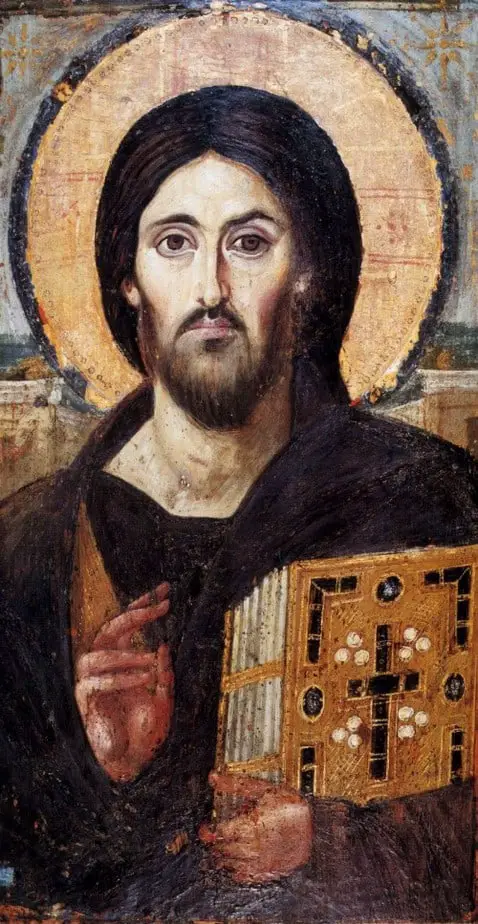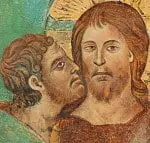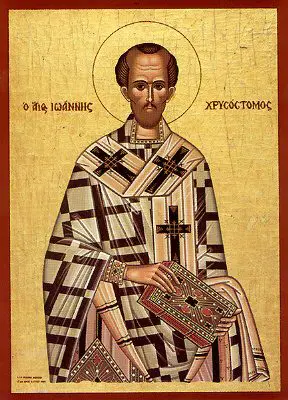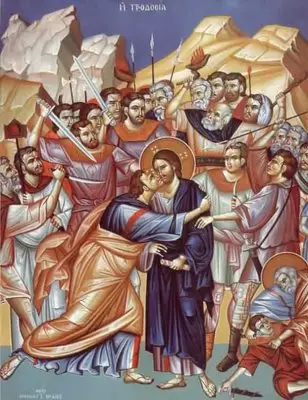St. Seraphim of Sarov: . . . the devil strives to lead a man into despair. . . .
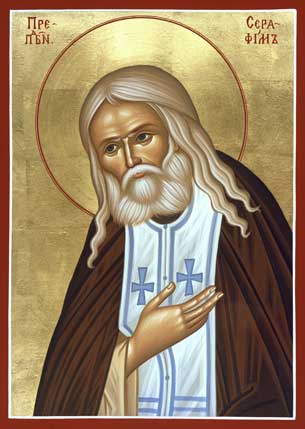
Just as the Lord is solicitous about our salvation, so too the murder of men, the devil, strives to lead a man into despair.
A lofty and sound soul does not despair over misfortunes, of whatever sort they may be. Our life is as it were a house of temptations and trials; but we will not renounce the Lord for as long as He allows the tempter to remain with us and for as long as we must wait to be revived through patience and secure passionless!
Judas the betrayer was fainthearted and unskilled in battle, and so the enemy, seeing his despair, attacked him and forced him to hang himself, but Peter, a firm rock, when he fell into great sin, like one skilled in battle did not despair nor lose heart, but shed bitter tears from a burning heart, and the enemy, seeing these tears, his eyes scorched as by fire, fled far form him wailing in pain.
And so brothers, St. Antioch teaches, when despair attacks us let us not yield to it, but being strengthened and protected by the light of faith, with great courage let us say to the evil spirit: “What are you to us, estranged from God, a fugitive from heaven and evil servant? You dare do nothing to us. Christ, the Son of God, has authority both over us and over everything. It is against Him that we have sinned, and before Him that we will be justified. And you, destroyer, leave us. Strengthen by His venerable Cross, we trample under foot your serpent’s head” (St. Antioch, Discourse 27).
+ St. Seraphim of Sarov, “The Spiritual Instructions to Laymen and Monks”, printed in Little Russian Philokalia: St. Seraphim of Sarov

